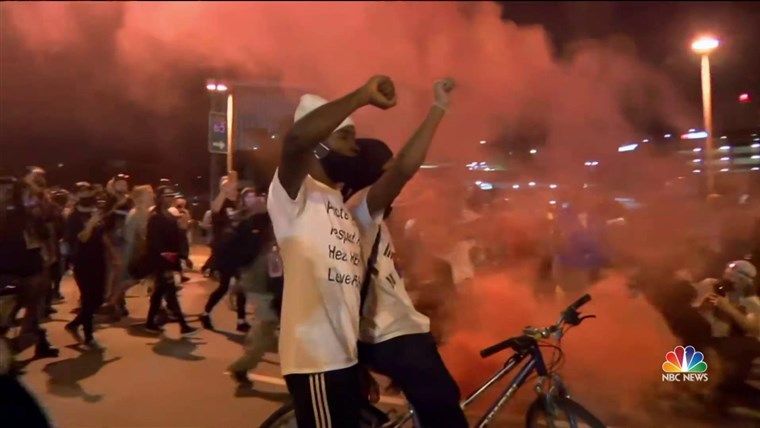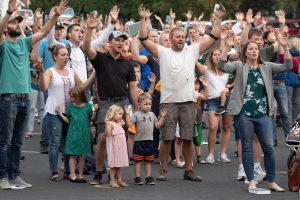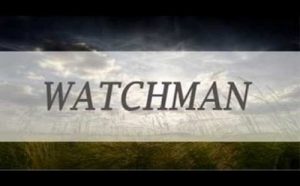On May 31, Tyler Weakley and her boyfriend, Corbin Smith, were headed to dinner in downtown Louisville when they stopped by the fourth night of what would become months of citywide protests over the death of Breonna Taylor, a 26-year-old Black woman killed by police. They had watched the peaceful protest for 15 minutes, they said, when things took a turn and they found themselves fleeing from tear gas and rubber bullets and then getting arrested.
Five months later, Smith and Weakley are living in limbo. They face charges from that night — an unlawful assembly misdemeanor for Smith and a rioting felony for Weakley — but are still waiting to learn if they will really be prosecuted. The young couple say they had planned to move to Cincinnati, but just had to extend their lease in the Louisville area, where an overwhelmed court system has yet to resolve hundreds of cases tied to the ongoing protests.
“I’m angry about it, because we got charged for stuff that we just did not do,” Smith said. “And now, it’s just holding over our heads.”
During a spring and summer of protests, police in cities around the U.S. arrested thousands of protesters for charges ranging from misdemeanors like disorderly conduct to offenses as serious as assault and arson. In many cities where protests made national news, NBC News found that prosecutors have dropped the bulk of the cases tied to arrests of protesters, focusing on the most serious alleged offenses.
Things are different in Louisville. Because of a county court system that has limited operations during the pandemic, the way criminal charges are filed in Kentucky and a prosecutor who critics say seems reluctant to dismiss charges en masse, hundreds of protesters have not yet had their day in court. Many, like Smith and Weakley, have been waiting for months.
Corbin Smith, left, is an emergency room technician and Tyler Weakley is a pharmacy tech at a cancer center. Said Smith, “If I could do it again, we would have went straight to dinner and come home like we planned. I just never though for one minute that we would be arrested.”Courtesy of Corbin Smith
“I know it weighs heavy on me, and every judge here,” said Chief Judge Anne Haynie of Jefferson County District Court in Louisville, which is responsible for the initial processing of protester cases. “I always try to treat people the way I would want to be treated. I wouldn’t want to have been charged in May, and here it is October and I’ve never seen a judge.”
Since protests began in Louisville, the police have made roughly 800 arrests, from a “Granny for Breonna” to children as young as 13, police data shows. Protesters usually receive misdemeanors, but charges have also included felonies like wanton endangerment and rioting.
In interviews with NBC News, over two dozen protesters, the ACLU of Kentucky, the NAACP Legal Defense Fund and local defense lawyers said the way police have charged protesters appears random and, at times, disproportionate. But in Kentucky, unlike many states, prosecutors don’t prescreen charges before they go to court. Once a person is arrested and charged by police, the defendant is immediately given a case number reflecting what police decided — regardless of whether it is a felony or misdemeanor. After that, a prosecutor can file a motion to dismiss or alter those charges at any time, but defendants are in the justice system.
For nearly five months, County Attorney Mike O’Connell, the top prosecutor for the district court, largely opted not to use those powers, except for two occasions where he dismissed felonies from high-profile, controversial incidents. Rather than drop the majority of protest cases, he is reviewing evidence for each charge in turn, according to a spokesperson, a process that would normally begin at the initial court date — which many protesters still have not had. Today, the majority of protester cases remain unresolved.
“COVID has slowed our entire court system but as these protest-related cases come onto dockets we have a team of prosecutors reviewing the charges and evidence,” the spokesperson wrote to NBC News. “If appropriate, we are dismissing charges.”
Asked to respond to allegations from advocates that the charges are disproportionate and that court delays are harmful to the accused, the county attorney’s spokesperson reiterated that prosecutors need to review each charge in turn, and again cited backlogs due to Covid-19.
This week saw some of the first progress in the county attorney’s review process, as over 350 protest-related cases had their initial court date, and about 100 misdemeanors were dismissed, according to a pro bono legal team representing protesters. But advocates say that the county attorney should simply drop most protest-related charges, especially in light of coronavirus-related court delays. Roughly 22,000 criminal cases are backlogged in Louisville’s district court. There have been no jury trials since March, and less than half the criminal courtrooms are operating. Until September, there were no regularly scheduled hearings for defendants out of custody, which covers most protesters.
Sept. 26, 202001:42
Meanwhile, the protests continue, and approximately 200 protesters have been arrested in the past month. Those arrested since May include many young, first-time offenders — high school and college students. Amid the delay, they worry about jobs, housing, college applications, scholarships and even the ability to vote in future elections across the U.S.
“I’ve never seen anything like this,” said Ted Shouse, a veteran criminal defense attorney who works with the Bail Project in Louisville. “To have these folks walking around with criminal charges over their head for this amount of time is extraordinary and damaging to their lives.”
Smith and Weakley, two health care workers in their 20s, stopped to watch a protest on May 31 to “show support for the community,” they said in a court filing. They told NBC News they never expected to face tear gas, flash bangs, pepper balls and rubber bullets, or become plaintiffs in a lawsuit filed by civil rights groups, including the ACLU of Kentucky and NAACP Legal Defense Fund, against the Louisville Metro Police Department over use of force.
While running from the chaos to their car, Smith and Weakley say they encountered approximately 40 officers in riot gear who drew guns. They kneeled, hands raised, and were then tackled by five officers each and arrested, according to the lawsuit. “I kept asking, ‘OK, so what are we going to jail for?” said Weakley, adding that neither she nor Smith has ever been in trouble with the law.
They spent the night in jail. Both got curfew violations. But while Smith also left with a misdemeanor unlawful assembly charge, Weakley received felony rioting, which carries a prison sentence of one to five years. Nearly five months later, the criminal charges are still looming. They recently postponed plans to move to Cincinnati together, concerned that the charges would complicate jobs, housing and medical licensing for Weakley, who is a pharmacy tech at a cancer center.
“I’ve been anxious for five months,” said Weakley. “That’s a long time for me to wait and figure out what I need to do to get my life going.”
The Louisville Metro Police Department and the Office of the County Attorney declined to comment on specific cases. But court officials emphasized that coronavirus was complicating protesters’ situations.



















